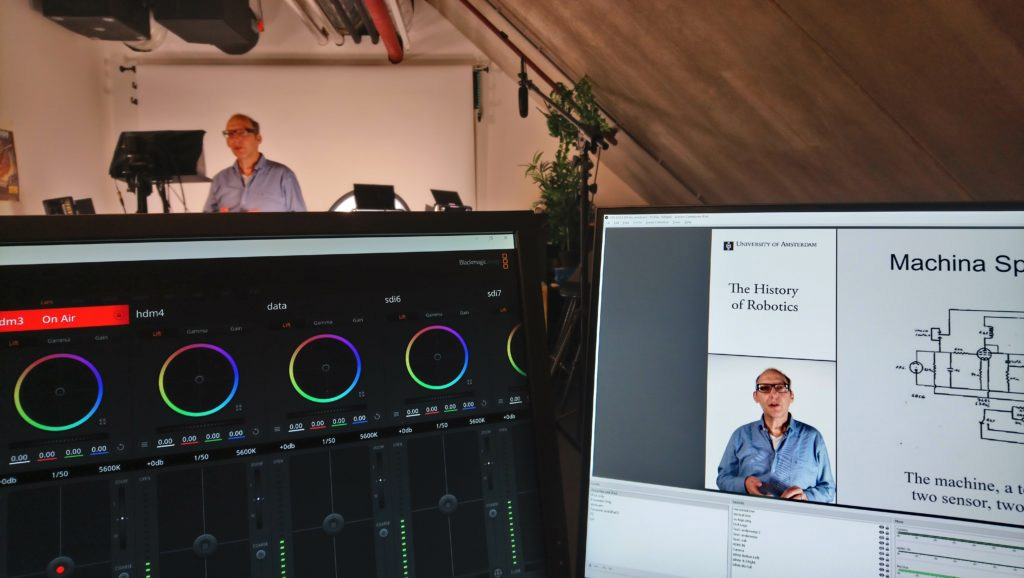
Behavior-based Robotics
About Behavior-based Robotics
| Course | Behavior-Based Robotics |
| Program name | PsychoBiologie |
| Student count | 24 |
| One-sentence summary of course content | Following a discussion of the relevant biological and psychological models of behavior, the course covers the usage of the behavior-based programming paradigm in robotics. |
| Challenge | Combining three aspects of behavior-based robotics in a short period (one month) |
| Intervention | Incorporate the theory into the preparation of the essay by recording lectures based on the chapters of the textbook. |
| Evaluation | The overall appreciation improved 2 points. |
Interview with Arnoud Visser
Can you tell something about your course before the innovation? What was the issue you were facing in your course?
The course was based on a Textbook from 1998 (419 pages), and consisted of 20 hours lectures, 28 hours practical and 2 hours workshop, 3 hour exam.
What intervention was chosen? Why?
While the book is quite old, many parts of it are still relevant. In order to both archive the most interesting parts of the book in a digital way, and at the same time create video/lecture material to use in class, 4 chapters from Robotics Handbook from 2016 (90 pages) were recorded in about 10 hours. This material was used to prepare students for their essay. Now the course consists of 4 hours live lectures, 48 hours practical, and 4 hours workshop.

How was the students’ experience? Did they like it and/or did they perform better?
‘De hoorcolleges waren leuk en interessant. Het was gaaf om met robots te werken! We kregen veel vrijheid om ons eigen manier te werken / programmeren.’
Are you going to use it again? If yes, what would you change in the next iteration?
Yes, this clearly improved the course.
How much (extra) work did it cost you? Does it outweigh the benefits?
This was a one-time investment of 20 hours. While I think the time was well spend, it could also have been used to enhance the course, for example to make the example code of the practicals more failsafe.
Do you recommend this approach to other lecturers? Why?
Yes I do. Because students are required to watch the videos/lectures beforehand, we have more time during the practicals to dive into the subject matter and cover the harder aspects of the course together.
Is there anything else you’d like to add?
The recorded lectures could be augmented with short knowledge quizzes, as check if the key points were grasped.






